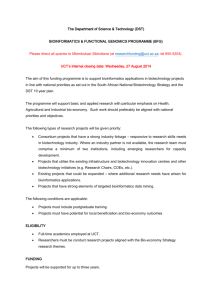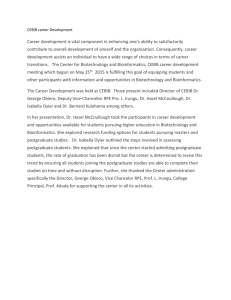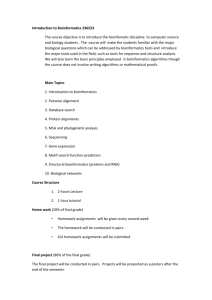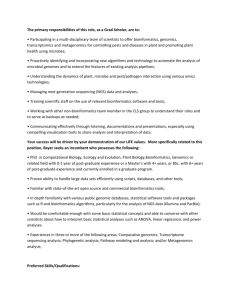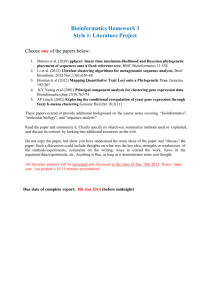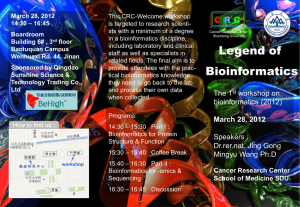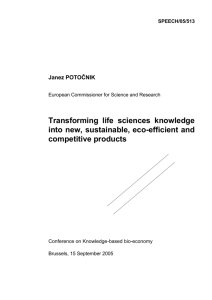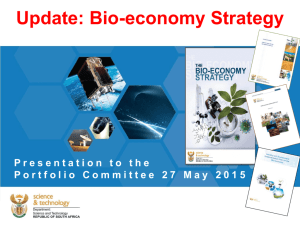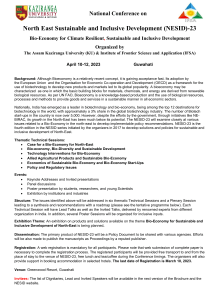BFG One pager March 2015 - National Research Foundation
advertisement
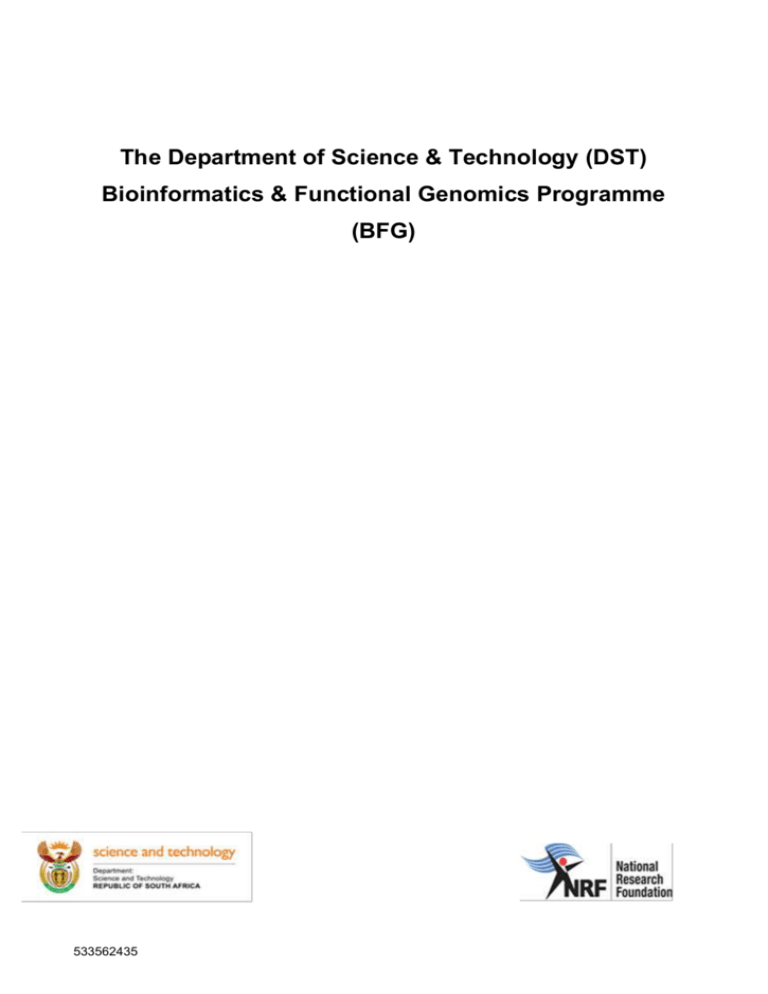
The Department of Science & Technology (DST) Bioinformatics & Functional Genomics Programme (BFG) 533562435 1. Introduction South Africa recognizes the importance of and special contributions of studies in Bioinformatics towards transforming the bioeconomic landscape and in this context the Department of Science and Technology (DST) and the National Research Foundation (NRF) initiated a Funding Programme for Bioinformatics and Functional Genomics in 2009. The main purpose of the programme is to generate bioinformatics solutions and knowledge relevant to the South African biotechnology industry. In its attempt to reinforce the importance of Bioinformatics, the Department of Science and Technology reaffirmed its commitment to invest in the discipline through its Ten-Year Innovation Plan, especially the Farmer-to-Pharma grand challenge, which was prioritized as an innovation chain to strengthen the bioeconomy of South Africa. It is in this context that the DST-NRF collaboration is vital since it strives to promote and support knowledge creation and human capital as the key enablers of innovation. 2. Aim of Programme The aim of this funding programme is to support bioinformatics applications in biotechnology projects in line with national priorities as set out in the South African National Biotechnology Strategy and the DST 10 year plan. 3. Strategic Objectives There are four over-arching objectives to the programme: To create a pool of postgraduate students equipped to support the South African biotechnology sector. To generate bioinformatics solutions and knowledge relevant to the South African biotechnology industry. To support bio-informatics based projects funded through the various biotechnology initiatives (e.g. COEs, Research Chairs, etc.). To promote collaboration between academic institutions as well as between academia and industry. 4. Broad Areas of Support The Programme will support basic and applied research with particular emphasis on Health, Agricultural and Industrial bio-economy. Such work should preferably be aligned with national priorities and objectives. 5. Eligibility In order to qualify for funding, applicants must: i. Be full-time academics at South African Higher Education Institutions, Science and Research Councils or other recognised institutions for the duration of the project. ii. Carry out research projects aligned with the Bio-economy Strategy research themes. 533562435 Page 2 of 9 6. Conditions of Support The following conditions are applicable: i. Projects must include postgraduate training. ii. Projects must have potential for local beneficiation and bio-economy outcomes such as post-graduate training and support, publications, collaborations (including industry partnerships) and strengthening the value chain; iii. Wet lab cost must be covered by other sources of funding for example THRIP, Thuthuka, TWAS, SANBio, FP7, H2020, etc. iv. Projects must be economically and socially viable. v. Projects must drive use of technology and innovation relevant to bio-economy in South Africa. vi. Project must drive the use of datasets in South Africa. vii. Project must have the relevant expertise in the research team. viii. Successful applicants must sign Conditions of Grant (COG) between the NRF and the grantholder/institution. ix. Additional support and training needs should be channelled through the Bioinformatics Service Platform. i. Contact details Mr Nathan Sassman - Programme Director (012) 481-4193 nathan@nrf.ac.za Ms Tsibiso Mohlomi - Professional Officer (012) 481-415 tsibiso.mohlomi@nrf.ac.za Ms Etresia Diedericks – Marketing and Communication (012) 481-4040 etresia@nrf.ac.za 533562435 Page 3 of 9
